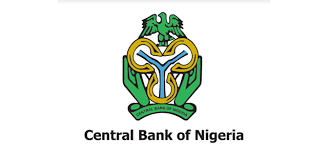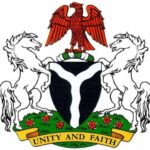The World Bank has called on the Central Bank of Nigeria (CBN) to discontinue its practice of intervening in the foreign exchange market through ad-hoc forex auctions.
The global financial institution recommended that the CBN adopt a transparent and comprehensive framework for managing exchange rate interventions and strengthen its commitment to exchange rate flexibility.
This advisory was part of the World Bank’s latest Nigeria Development Update, which offers strategic insights aimed at stabilizing the naira. On August 26, 2024, the CBN conducted a significant retail Dutch auction, selling $876.26 million to end users—a move that marked a departure from its conventional practice of selling to bureau de change operators. This auction, one of the largest since Governor Yemi Cardoso took office, was aimed at stabilizing the naira and curbing volatility in the foreign exchange (FX) market.
According to the CBN, the auction was designed to boost liquidity, reduce demand pressures, and facilitate price discovery. Reports indicate that 3,347 firms accessed dollars through 26 qualifying banks at a cut-off rate of N1, 495 per dollar.
Despite the CBN’s rationale, the World Bank has stressed the importance of fostering a more flexible FX trading system to deepen market dynamics. The report urged the CBN to ensure that the exchange rate reflects market conditions and to enhance the official FX market’s resilience. It also recommended re-integrating bureau de change operators and enabling international oil companies to contribute their FX sales to the official market.
The World Bank suggested that strategic accumulation of foreign reserves would provide stability for the naira and create a predictable economic environment conducive to both local and international trade. It emphasised that maintaining a market-reflective, unified exchange rate would enhance fiscal revenues from oil and export-related taxes, attract investment, build external reserves, and set a foundation for sustainable economic growth. Anchoring exchange rate expectations to economic fundamentals rather than specific targets was deemed essential.
During the recent IMF/World Bank annual meeting in Washington, D.C., Honourable Minister of Finance and Coordinating Minister of the Economy, Mr. Wale Edun, acknowledged the World Bank’s recommendations but clarified that not all measures had been adopted by the government. He highlighted the successful subscription rate—over 180 percent—of a $500 million domestic bond as an instance of Nigeria’s selective policy adoption.
The World Bank also raised alarms over Nigeria’s rising non-performing loans (NPLs), which climbed to 5.1 percent in Q1 2024, surpassing the 5.0 percent prudential benchmark. This figure represents a 0.6 percent increase compared to Q1 2023, reflecting an increased risk of loan defaults. The report warned that high inflation, significant naira depreciation, and rising NPLs have weakened the banking sector’s capital buffers. The capital adequacy ratio fell from 14.2 percent in Q1 2023 to 11.1 percent in Q1 2024, signalling diminished financial resilience.
Furthermore, the report noted the CBN’s intensified open market operations (OMOs), which totalled N6.6 trillion in the first eight months of 2024—30 percent more than the combined OMOs of the past three years. These actions have siphoned naira liquidity and attracted foreign exchange inflows, aligning with recent FX policy reforms.
The World Bank’s report also pointed out that Nigeria’s monetary policy has tightened, with the standing deposit facility rate being adjusted closer to the monetary policy rate (MPR) and the standing lending facility rate set at MPR +500 basis points. This alignment of market rates with the MPR is seen as a further step in consolidating FX market reforms.
The World Bank’s recommendations are seen as crucial for enhancing market transparency and resilience, fostering long-term economic stability in Nigeria.



